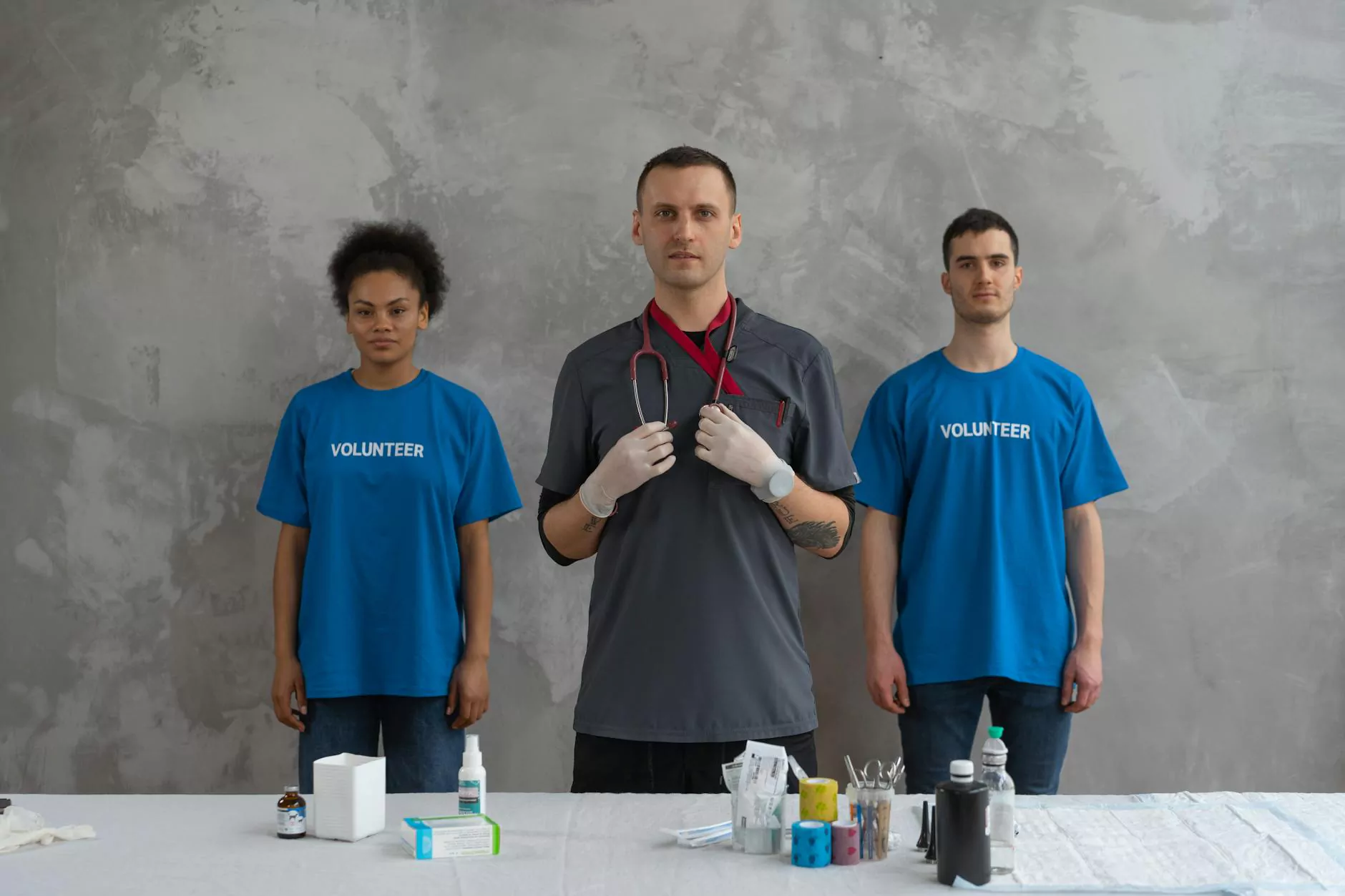The Essential Role of a Lung Specialist in Health and Wellness

In the realm of health and medical care, a lung specialist, also known as a pulmonologist, holds a critical position. They focus primarily on diagnosing and treating respiratory diseases and conditions, which are paramount to maintaining overall health. As our understanding of the respiratory system expands, the significance of lung specialists becomes increasingly evident.
Understanding the Role of a Lung Specialist
A lung specialist is a physician who has received advanced training in the diagnosis and treatment of lung diseases. They deal with a wide range of conditions, including:
- Asthma
- Chronic Obstructive Pulmonary Disease (COPD)
- Pneumonia
- Interstitial lung disease
- Sleep apnea
- Pulmonary hypertension
Lung specialists are equipped with a deep understanding of the respiratory system and often utilize advanced technology and treatments to manage complex cases effectively.
Education and Training of a Lung Specialist
The journey to becoming a lung specialist involves extensive education and training. A typical path includes:
- Bachelor's Degree: A four-year undergraduate program focusing on the sciences.
- Medical School: This involves another four years of education to earn a Doctor of Medicine (M.D.) or Doctor of Osteopathic Medicine (D.O.) degree.
- Residency: After medical school, aspiring pulmonologists complete a 3-year residency in internal medicine.
- Fellowship: Following residency, they undergo an additional 2-3 years of specialized training in pulmonary medicine.
This rigorous training ensures that lung specialists are exceptionally qualified to tackle the complexities of respiratory disorders.
Common Conditions Treated by Lung Specialists
Lung specialists diagnose and manage a variety of respiratory illnesses. Understanding these conditions can help patients seek timely intervention.
Asthma
Asthma is a chronic lung condition characterized by inflammation and narrowing of the airways, leading to wheezing, coughing, and difficulty breathing. A lung specialist can craft personalized management plans that may include medications, lifestyle changes, and monitoring techniques.
Chronic Obstructive Pulmonary Disease (COPD)
COPD is a progressive disease that primarily occurs due to long-term exposure to irritating gases or particulate matter, often from cigarette smoke. Treatments may involve bronchodilators, inhalers, and pulmonary rehabilitation.
Pneumonia
Pneumonia is an infection that inflames the air sacs in one or both lungs. A lung specialist plays a vital role in diagnosing the type of pneumonia and determining the appropriate course of action, which might include antibiotics or hospitalization for severe cases.
Interstitial Lung Disease
This group of lung diseases involves scarring (fibrosis) of the lungs, which can lead to difficulty in breathing. Management often focuses on slowing down the progression of the disease and improving quality of life.
Sleep Apnea
Sleep apnea is a disorder characterized by repeated interruptions in breathing during sleep. Lung specialists may conduct sleep studies and recommend treatment options, which may include CPAP machines or lifestyle modifications.
Pulmonary Hypertension
Pulmonary hypertension is high blood pressure in the blood vessels that supply the lungs. Treatment may involve medications, exercise programs, and sometimes surgery.
Importance of Lung Health in Overall Well-being
The health of one's lungs is closely linked to overall wellness. Poor lung health can lead to complications in other systems of the body, underscoring the importance of seeking care from a lung specialist when respiratory issues arise.
Preventive Care and Regular Check-Ups
Regular visits to a lung specialist can prevent many complications associated with respiratory conditions. Preventive strategies might include:
- Vaccinations: Staying up-to-date on flu and pneumonia vaccines.
- Quit Smoking Programs: Engaging in programs designed to support smoking cessation.
- Pulmonary Rehabilitation: Participating in rehabilitation programs that focus on strengthening lung function.
- Nutrition Counseling: Understanding how diet impacts respiratory health.
Innovations in Lung Care
As medical technology advances, lung specialists have access to cutting-edge treatments and diagnostic tools. Innovative bronchoscopy techniques, advanced imaging, and clinical trials for new medications are just a few examples of how care for lung diseases is evolving.
For instance, minimally invasive procedures allow for quicker recovery times and less discomfort for patients. Furthermore, personalized medicine is on the rise, enabling treatments tailored specifically to the genetic makeup of the patient, leading to better outcomes.
Choosing the Right Lung Specialist
Finding the right lung specialist is crucial for effective management of respiratory issues. Patients should consider the following factors:
- Credentials and Experience: Verify the specialist's qualifications and experience in treating specific conditions.
- Patient Reviews: Look for testimonials or reviews from previous patients to gauge the quality of care.
- Communication: Choose a specialist who communicates effectively and listens to your concerns.
- Location and Accessibility: Consider the location of the practice and ease of access for appointments.
Conclusion
The role of a lung specialist in health care is indispensable for the prevention, diagnosis, and treatment of lung diseases. Their specialized training equips them to handle complex conditions effectively, fostering better health outcomes. By prioritizing lung health and engaging with a lung specialist, individuals can significantly enhance their quality of life and mitigate the risks associated with respiratory issues.
If you or someone you care about is experiencing respiratory symptoms, do not hesitate to consult a lung specialist. Early intervention is key to effective treatment and recovery.









